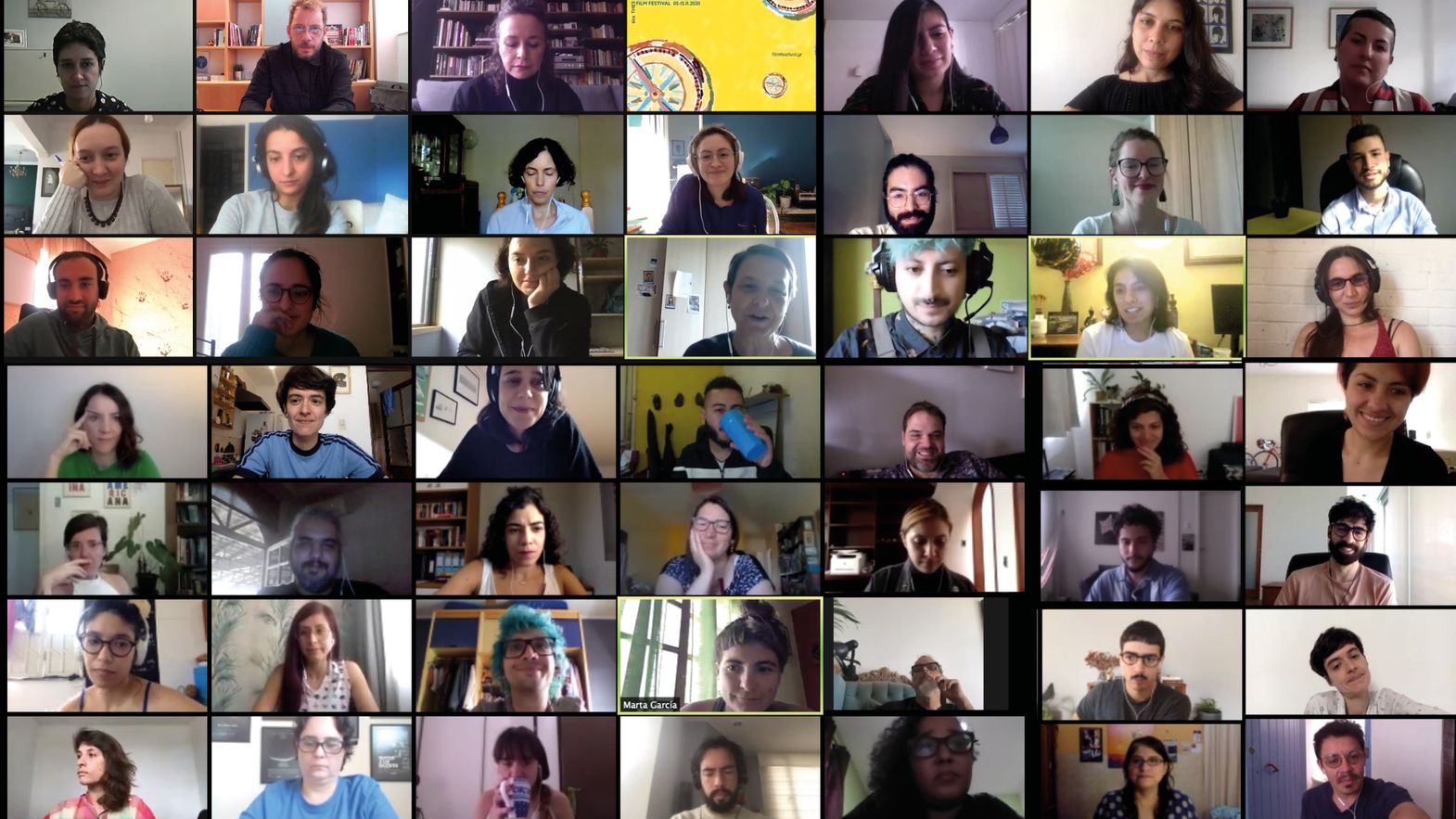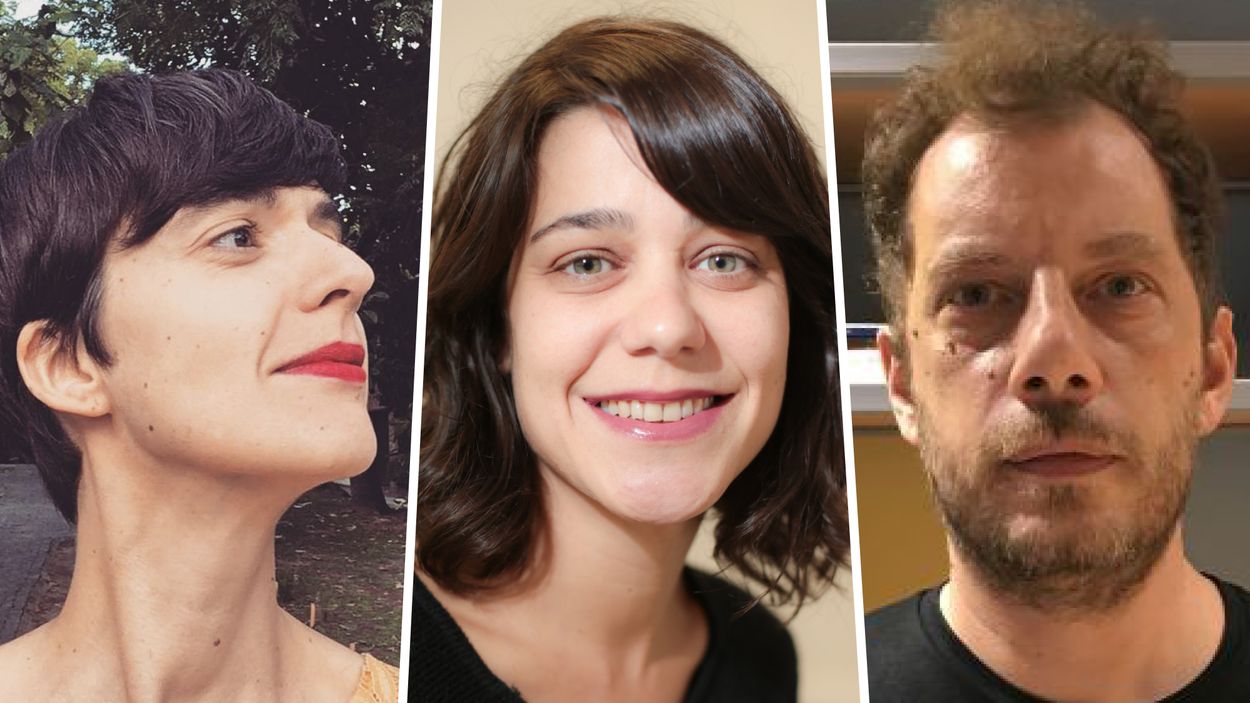Discover the Locarno Industry Academy International 2020
 The Locarno Industry Academy International "2020 Edition"
The Locarno Industry Academy International "2020 Edition"
No more screens. Well, almost. One can scarcely believe it when talking about cinema. And yet, at the end of an unpredictable and – hopefully – unique 2020, part of the industry wishes to shut down the screen. Not the big one, where cinema lives, but the smaller one where the Locarno Industry Academy International had to make room for itself this year. It was a 2020 of renunciations and relaunches, of disappointments and surprises, of ideas that had to be found and preserved, for the future. And on that somewhat jarring small screen, the Locarno Industry Academy International found and discovered something important, and democratic. The summary of the year 2020, which had to make do without the appointments in Locarno, Panama, Beirut, New York and Morelia, while moving the ones in Thessaloniki, São Paulo and Santiago online, comes courtesy of Marion Klotz, the International Project Manager who is directly responsible for the Chilean Academy alongside Erick Gonzalez; Konstantinos Aivaliotis, Project Manager for Thessaloniki; and Julia Duarte, Project Manager for São Paulo. They’re all part of a team that had to rethink a concept based on encounters, making it work remotely.
“In our Academies the content is as valuable as the form, which is the meeting, and the bond that is created between the participants”, says Marion Klotz. “So right from the start we had to face something that potentially lacked 50% of its strength. The main challenge was precisely to be able to trigger cohesion between the participants, even though they were tens, hundreds or thousands of kilometers away. The ‘face to face’ is an integral and essential part of our training method, it is essential that the participants live the experience together, so the primary goal was one: to recreate that space for exchange.” Kostantinos Aivaliotis adds: “A feeling of emptiness had to be filled, that of those who live by participating in a collective event without being able to share what one feels after a seminar or a splendid discussion. At the same time it was necessary to find a balance between the number of meetings, the schedule, the rhythm, and the involvement of the participants.” Julia Duarte explains: “The Academies generate encounters, which in turn form new networks of professionals who support each other. The ‘2020 challenge’ was to be able to rebuild this terrain digitally! And honestly, after the fact, following the participants’ WhatsApp group, it is incredible to see it did happen.”
 Marion Klotz, Julia Duarte and Konstantinos Aivaliotis
Marion Klotz, Julia Duarte and Konstantinos Aivaliotis
What was the best lesson you learned from 2020?
MK: “Teamwork. Between ourselves and with our partners, such as BrLab and Australab, who immediately put their commitment and enthusiasm on the plate. If I think of Latin America, despite the obvious difficulties it was really important that the Academy continue, even in a less than ideal context. And not only did we succeed, but this year we have also given the entire region and its Academies a central coordination and reference point, giving birth to the Locarno Industry Academy Latin America, supported by IBERMEDIA program, a unique project that has further strengthened bonds and increased organizational strength”.
KA: “First of all, our great ally, technology, has a price. And if you are a great speaker, a good teacher, you are one online as well.”
JD: “The resistance of our tutors and participants. Listening to them, each from their own country and with their own history, eager to move forward, to share, to resist; when we are able to share experiences, everything seems possible on the horizon.”
Can digital platforms be the future of the Academy?
MK: “The advantages are real and evident; guaranteeing a diversity of profiles among both participants and tutors, who are no longer forced to travel and stay elsewhere for 3-4 days, with the costs it requires. Technology eliminates these constraints and therefore broadens the audience of possible participants, offering the same training even to those without the financial means. Online is accessible to all, it offers inclusion and diversity. Perhaps the most interesting thing to do is to imagine a hybrid format, in order to not lose these values. Having said that, our commitment must be directed towards the encounter, the real experience. Our work is contact, communication, relationships based on trust. Our very industry was built on a social idea.”
KA: “Technically, they can be, but I firmly believe that in the context of an Academy linked to a Festival it is much better and more efficient to organize a physical event, among the activities of an international market. Some educational programs will undoubtedly remain exclusively online, but in our case we would have to change a lot so that our online version can make sense and be attractive.”
JD: “An online scenario is certainly not the most desirable one; there are extremely positive aspects of this experience, such as being able to structure ourselves with the birth of the Locarno Industry Academy Latin America, and working together with all the project managers. Or beyond that, having been able to broaden our audience by de-centralizing the selection; usually in São Paulo we have people from the city or from Brazil, this year we had only one participant from São Paulo, some Brazilians from other regions and then guys from Bolivia, Chile, Colombia, Mexico and Peru. In short, we will probably have to look at a hybrid model, a more sustainable, more inclusive and less expensive one, without however losing the meetings, events and above all the experience of seeing a film in a dark room, surrounded by other people.”
How do you imagine the 2021 Academy?
MK: “Face to face, sharing what the digital will never know how to convey.”
KA: “Where it belongs, in the port of Thessaloniki, in Warehouse C, between people from all over the world who run with a coffee in their hand to attend a screening or a meeting, meeting other faces and other smiles.”
JD: “Hybrid, face-to-face and online, capable of welcoming anyone.”